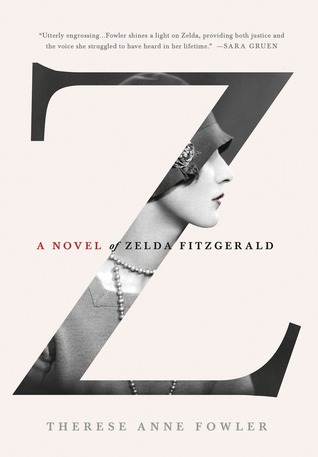
Man! It's been such a long time since I've written a review. I know you've all been waiting for months with baited breath. ;) I am going to try and be better at this blogging venture!
This was another book that I saw on the new bookshelf at the library and thought it looked pretty interesting. It's a historical fiction novel about the life of Zelda Fitzgerald after she met F. Scott Fitzgerald. At the end of the book, the author lets the reader know what is fact and what is fiction. A lot of the dates and places are real. F. Scott Fitzgerald's temperament and alcoholism is based off actual events that happened and Zelda's hospitalizations were also accurate, among other things. The author speculates a little on the reason why Ernest Hemingway and F. Scott Fitzgerald end their friendship and how Zelda may have felt after Scott's drunken episodes.
I don't think I will ever tire of catching glimpses into other people's lives, even if it is partly fictional. :) I really like that she writes in first person and uses letters of correspondence to develop the story further. It made me sad for the life the Fitzgeralds may have had if they hadn't been so wrapped up in the "young and bright" age of the 20s and the fame of his first novel. It made me sad for her as a wife and mother. I'm not sure if it's true or not, but I was surprised to find that she wrote as well and her stories were doing better than Scott's. Because of the time period, though, her stories were placed under his name. How frustrating that must have been! And not being able to realize other dreams that she had. I am realizing this is sounding quite depressing and it was a little bit, BUT I enjoyed how the author showed how much Zelda and Scott loved each other despite their misgivings and hardships. How much their love endured.
I enjoyed reading the book, but there were certain things that were a bit too... promiscuous for lack of a better word. There were some swear words and a bit too much sexuality in a few directions for my taste. Nothing too explicit, but it might be better reading about their lives in a biography if you're uneasy about that kind of stuff.





